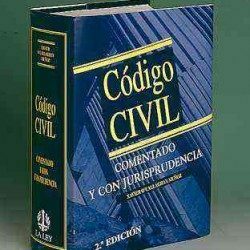Essay on The Little Prince
Miscellanea / / November 09, 2021
Essay on The Little Prince
The little Prince
Le Petit Prince by Antoine Saint Exupéry, The little Prince, is the most translated literary work of the 20th century and one of the most celebrated in 20th century French literature, as well as being the best known of this French author and aviator.
Much has been written about it and many people have read it during their adolescence and youth, since it is a usual book for initiation to reading. However, not much is usually said about the writing context of the work, a dark and terrible time: the Second World War.
Saint Exupéry (1900-1944) was a French novelist and aviator, the son of an aristocratic family from the city of Lyon, whose first steps in aeronautics were taken during military service in Strasbourg. Made aviator, he knew many latitudes of the world and practiced journalism in them, publishing reports about colonial Vietnam (Indochina, then), Soviet Moscow, and pre-Civil War Spain.
Many of his reflections on humanity and humanism at that time are collected in the lesser known
Terre des hommes (Land of men, 1939), published just at the start of World War II and before he was called to the fore as a pilot for an aerial reconnaissance squad.After the invasion of France, Saint Exupéry went into exile in New York and there he tried to resume an active role in the conflict, but was rejected numerous times as an aviator. Finally, in 1944, once the United States was fully committed to the war, he joined an aerial photography unit destined for Sardinia and then Corsica. On July 31, 1944, less than a year before the liberation of France, he took off aboard a Lightning P-38 and disappeared without leaving any trace of his whereabouts.
For its part, The little Prince It was first published in 1943. The manuscript had been written and illustrated by the author himself during his exile in the United States, which is why it appeared in the American publisher Reynal & Hitchcock, while its publication in France had to wait until 1946, that is, it was posthumous. Saint Exupéry never knew the fame that his character, the little prince thirsty for wisdom, would have throughout the world.
Signs of a fractured world
As we know, the Little Prince inhabits a tiny world - the asteroid B-612 - in which he has three volcanoes (only one active) and varieties of plantsamong them the dangerous baobabs: huge trees that continually try to germinate in the soil of the asteroid and that, if they did, they would destroy everything with its roots; That is why the youngster continually cleans the ground, at the same time that he sweeps his three small volcanoes.
Determined to get a lamb to help him in this task, the Little Prince begins a journey to Earth, in small asteroids in which symbolic, sometimes enigmatic encounters take place, from which the young protagonist learns things specific.
In this initial scenario, which apparently has nothing to do with earthly reality, a suspicious glance will recognize the feeling of imminent danger: volcanoes that could erupt and giant trees that could grow are invisible threats associated with the earth, which underlies the apparent order and which, however, could destroy everything and leave you without home.
One might wonder how much of them represent the telluric political movements that occurred in Europe since the beginning of the 1930s, with the rise of German Nazism and Italian Fascism: two bad seeds that germinated in fertile and they ended up consuming everything, leaving little or no space for dissent or for the respectful coexistence of other forces policies. The baobab of the totalitarianism It germinated in two specific countries, but its roots soon migrated to the rest of Europe, especially France.
The same happens with the characters that the Little Prince is in his space journey towards the Earth: closed minded adults fanatically committed to their place in the total order of stuff.
A king without subjects, a vain man on a desert planet, a drunkard who drank to forget the shame of his life. alcoholism, a businessman who counted the stars of the universe and claimed to possess them, a lamplighter who dedicated his life to turning his lantern on and off every minute, and finally a geographer who, without ever having left his little planet, claimed to know the world theoretically integer. These are six sterile cases of adult life, devoid of a useful purpose and trapped in an order (internal or external, that is, a mandate that comes from somewhere) that does not allow them to abandon their place.
Particularly eloquent is the comparison between the lamplighter, whose commitment to work prevents him from a minute's rest, and the king without subjects, whose ermine cloak covers the entire planet and who, nevertheless, insists on giving orders.
The former could well be a symbol of the European working class, devoted to purposeless work. practical in its existence, while the second would represent the lonely and irrelevant aristocracy. Let us remember that the fascist movements were, in their essence, workerist and anti-monarchical movements, that is, that they spoke to the working class and that they were so opposed to the monarchy as well as Marxist communism, and who proposed a kind of "third way" towards the recovery of a patriotic sense, of a national belonging, of a "race higher".
To illustrate this possible reading, we can go to two quotes from the work. First, in his meeting with the lamplighter:
"There is nothing to understand," said the lamplighter. The slogan is the slogan. Good Morning.
And he blew out his lantern. He then wiped his forehead with a red checked handkerchief.
- I have a terrible job. Before it was reasonable. It turned off in the morning and turned on at night. He had the rest of the day to rest and the rest of the night to sleep ...
- And since then, has the slogan changed?
"The slogan did not change," said the lamplighter. That is the misfortune! The planet was spinning from year to year faster and faster and the slogan did not change.
- And so? –Said the little prince.
- So, now it goes around a minute and I don't have a second of rest. I turn on and off once a minute!
- That's funny! Days here last a minute!
"It's not funny," said the lamplighter. We have been talking for a month now.
And then, in his meeting with the king:
- If I gave a general the order to fly from flower to flower like a butterfly, or to write a tragedy, or to transform into a seabird and the general did not execute the order received, whose fault would it be, mine or he?
"It would be your fault," the little prince told him firmly.
- Exactly. You just have to ask each one what each one can give - continued the king - Authority rests first of all on reason. If you order your people to go sea, the people will make the revolution. I have the right to demand obedience because my orders are reasonable.
It seems clear that the king and the lamplighter have something to say about the order of Europe in the 1940s: Unreasonable orders that are strictly carried out, and of which only those who ordered them are guilty. Isn't this one description perfectly applicable to what was happening in Hitler's Germany and Mussolinian Italy?
In any case, a political reading of this novel short will undoubtedly reveal many more such interpretations. It is possible that what we have been reading for decades in the key of personal and sensitive growth, is at the same time a document about the most cruel war that modern humanity has ever lived, in which human reason itself put itself at the service of destruction. Perhaps that is what the Little Prince was referring to when he stated that "what is essential is invisible to the eyes."
References:
- "Essay" in WIkipedia.
- "The little prince" in Wikipedia.
- "Thus was born‘ The Little Prince ’" in The vanguard.
- "The whole truth about The Little Prince... or almost" in Clarion (Argentina).
- "The Little Prince" in The Encyclopaedia Britannica.
What is an essay?
The test it's a literary genre whose text is characterized by being written in prose and by addressing a specific topic freely, making use of the arguments and the author's appreciations, as well as the literary and poetic resources that make it possible to embellish the work and enhance its aesthetic features. It is considered a genre born in the European Renaissance, fruit, above all, from the pen of the French writer Michel de Montaigne (1533-1592), and that over the centuries it has become the most frequent format to express ideas in a structured, didactic and formal.
Follow with:



